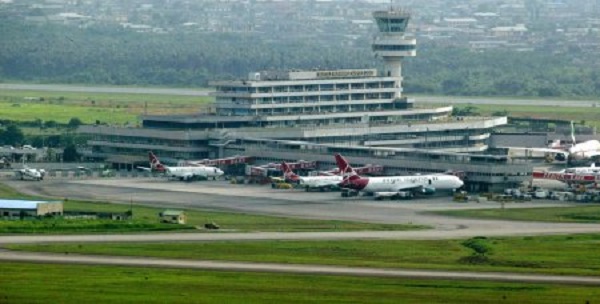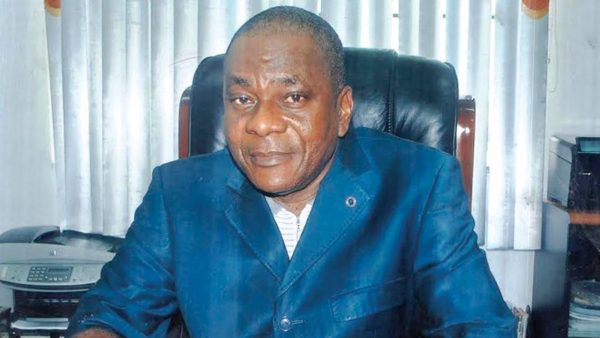- Aviation ministry abandons national policy that recommends economic regulator
- Minister engages oil & gas firm as consultant on airport concession
By Kenneth Jukpor & Nkem Osuagwu
Despite the controversy trailing the proposed concession of four airports in Nigeria, a former Nigerian Minister of Aviation, Dr. (Mrs.) Kema Chikwe has thrown her weight behind the concession even as she refers to the development as “apt” and “timely”.
However, she urged the Federal Government to ensure that the concession process goes through due process, noting that the government policy should take all aspects of the aviation sector, especially regulation and charges, into consideration before the concession.
Kema Chikwe, who was speaking during an exclusive chat with MMS Plus at the 5th Annual Women In Logistics and Transport (WiLAT) conference, held last week, said, “the Federal Government has to ensure that there is due process as it goes about the concession of the airports and I believe this is timely”
Reacting to the perceived challenges which may arise as a result of the absence of an autonomous economic regulator for the aviation sector, Kema Chikwe stated, “I have always believed that if the Federal Government should take such strategic revolutionary actions they must give due consideration to all aspects for success in that venture. I don’t think anybody would want to plan to fail, but I also think that the operators, stakeholders and the users of the airports have a say. They can bring their ideas so we could analyze critically to be able to get the best ways to achieve the economic success of the government desires for the aviation sector.”

Having presided over the Nigerian Airways in the past, Kema Chikwe also spoke on the development of a national carrier for the airways. She stated that she was yet to strike the balance between the development of national carrier for aviation and the concession of the airports.
“I don’t know how to strike the balance because Nigeria is talking about airport concession and we are also talking about national carrier. However, Nigerian Airways was greatly abused because government institutions and businesses are treated as no-man’s business and such lackadaisical attitude always lead to the crumbling of such institutions. The government has to restructure the business model of the national carrier; they should involve the private sector since they are talking about concession. After Nigeria Airways, I don’t think Nigerian government would want to fail this time. So, they have to apply contemporary methods because government enterprises seem to be outdated. We should be talking about a dynamic private sector and I don’t think the Nigerian government can successfully own any business enterprise.” She said.
Meanwhile, the former Aviation Minister couldn’t allay fears of massive job losses to automation that is set to come with the concession, “My worry about concession is the workers in the aviation sector. Something has to be done to guarantee the jobs of the workers. Concession shouldn’t always lead to massive loss of jobs. That is my only fear on the concession.” She added.
Recall that as at 2010, a report published in Oxford Economics, credited the Nigerian aviation sector to have supported 159,000 jobs in Nigeria contributing N119 billion (0.4%) to the nation’s GDP. According to the report, the income generation from 8.3 million passengers amounted to NGN 866 billion (tax inclusive), with Nigerian 4.2 million local passengers contributing N438 billion of the total sum.
However, there are indications that the aviation sector may face an economic regulatory tragedy similar to the maritime sector, which was occasioned by the seaport concession without an economic regulator to control the commercial drive of the concessionaires.
The concession of the seaports in 2006 without an economic regulator coupled with the absence of antitrust law in the sector led terminal operators and shipping lines to increase their charges arbitrarily and introduction of several frivolous charges. These problems led to a presidential directive by former President Goodluck Jonathan for the Nigerian Shippers’ Council (NSC) to become the port economic regulator, a development that has attracted several court cases by terminal operators and shipping lines.
Antitrust law, also known as competition law, is a collection of federal and state government laws that regulates the conduct and organization of business corporations, generally to promote fair competition for the benefit of consumers.
According to National Civil Aviation Policy developed in 2013, the aviation industry has changed significantly over the last twenty five years with growing trend for the commercialization of the sector, shifting from their roots as government organizations towards fully independent entities that operate on the basis of a commercial business.
In countries like USA, UK, South Africa and India, an independent Economic Regulatory Unit with a Single Till System has been introduced as a way of improving the efficiency of operations and investment whilst reducing losses from the anticipated economic benefits.
The National Policy had stated that “in order to minimize the potential misuse of market power by aviation service providers and to foster a competitive, efficient and fair commercial environment where passengers receive quality services at reasonable prices, the Federal Government will establish an autonomous Economic Regulatory Unit under the office of the Honourable Minister that will become an Agency with time”
Nevertheless, the Nigerian aviation industry is set to put the cart before the horse with plans to concession without any arrangement to establish an economic regulatory agency to control the economic, commercial and financial practice of the aviation service providers and ensure that all aviation tariffs and charges commensurate with the services provided.
It should be noted that none of the government agencies in the aviation sector is saddled with the responsibility of regulating monetary activities. Like the maritime sector, there is no legal provision for the airports concession, MMS Plus checks have revealed.
The aviation ministry has six parastatals with their core functions as follows: Nigerian Civil Aviation Authority (NCAA) vested with the responsibility for safety oversight of the aviation industry in accordance with all international conventions and agreements, government policies and ICAO Standards and Recommended Practices (SARPs); Nigerian Airspace Management Agency (NAMA) is responsible for the provision of air navigation services, air traffic services, aeronautical telecommunication services and aeronautical search and rescue in accordance with Nigeria Civil Aviation Regulations (NCARs); Federal Airports Authority of Nigeria (FAAN) is responsible for airports development and management; Nigerian College of Aviation Technology (NCAT) provides aviation related training, research and consultancy services for air transport service providers and allied businesses; Nigeria Meteorological Agency (NIMET) responsible for the provision of meteorological services to the aviation industry. The Agency is also responsible for providing services to the marine, energy, agriculture and water resources industries, as well as preparing and interpreting government policy on meteorological and climate services; and the Accident Investigation Bureau (AIB) responsible for accident prevention, investigation of any accident or incident arising out of or in the cause of air navigation and occurring in or over Nigeria or occurring to Nigerian aircraft elsewhere in accordance with ICAO. It also has responsibility of family assistance for victims of air accidents and incidents.
While the aviation ministry seems to have jettisoned this germane National Aviation Policy recommendation, the Minister of Aviation, Senator Hadi Sirika has engaged an oil and gas company, Proserve Energy Services Ltd, as consultants for airports concession.
Proserve Energy Services Ltd, which has its head office at Wuse II in Abuja, was awarded the consultancy to handle the concession of the airports in Lagos, Abuja, Kano and Port Harcourt Airport, sparking fresh questions about the direction of the aviation ministry.
Although, Proserve can not boost of any experience in the aviation industry, it was allegedly contracted for the first phase of the concession plan for major airports by the aviation ministry as a transaction adviser without a competitive bidding process or open tender.
Investigations revealed that Proserve’s Managing Director is Abba Armiya’u Ibrahim, but neither he nor the other five members of its management team has any aviation-related background.
Some aviation stakeholders have alleged that the engagement of Proserve was part of the reasons aviation union leaders are against the concession exercise, citing government secrecy in the plan right from the outset.
Investigations also revealed that contrary to existing government regulations, there was no advertising in the media before the contract was awarded.
Copyright MMS Plus.
All rights reserved. This material, and other digital content on this website, may not be reproduced, published, broadcast, rewritten or redistributed in whole or in part without prior express written permission from KINGS COMMUNICATIONS LIMITED
 MMS PLUS NG – Maritime, Aviation, Business, Oil and Gas News Online Newspaper with coverage in Maritime, Oil and Gas, Aviation, Power and Energy as well as Financial News
MMS PLUS NG – Maritime, Aviation, Business, Oil and Gas News Online Newspaper with coverage in Maritime, Oil and Gas, Aviation, Power and Energy as well as Financial News










